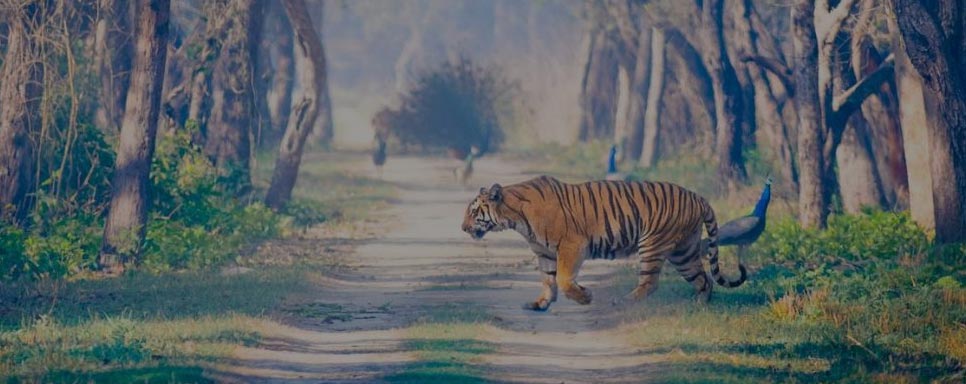Experience Tribal Tourism in Dudhwa Tiger Reserve

Dudhwa Tiger Reserve located in the Terai region of Uttar Pradesh offers a unique opportunity to experience tribal tourism. This reserve which spans across the districts of Lakhimpur Kheri and Bahraich is not just renowned for its rich biodiversity and being home to the majestic Bengal tiger but also for its vibrant Tharu tribe community. Engaging with the Tharu tribe provides visitors a deep insight into the local culture, traditions and lifestyle that have been preserved over centuries. Here are some aspects to consider when planning tribal tourism in Dudhwa Tiger Reserve:
Producing entry permits are mandatory to enter the safari zone that is produced online.
The entry permits are non-transferable.
Tharu Village Visits: Spend time in Tharu villages to experience their traditional way of life. The Tharu people have unique customs, colorful attire and distinctive architectural styles for their homes. Local Cuisine - Enjoy traditional Tharu food which includes a variety of dishes made from locally sourced ingredients. The cuisine often features rice, lentils and fresh vegetables with unique preparation methods and flavours.
Traditional Handicrafts and Art: Participate in workshops where you can learn about and create traditional Tharu handicrafts such as baskets, mats and pottery. These are made using natural materials and traditional techniques.
Local Markets: Visit local markets where Tharu artisans sell their handmade goods. Purchasing these items supports the local economy and helps preserve their crafts.
Cultural Performances: Folk Dances and Music, attend performances of traditional Tharu dances and music. These performances often depict stories from their mythology and daily life, accompanied by traditional musical instruments. Festivals - Plan your visit during local festivals like Maghi which is celebrated in January, to witness and participate in vibrant cultural festivities.
Nature and Jungle Safari Wildlife Tours: Explore the Dudhwa Tiger Reserve through guided jeep safaris or elephant rides. These tours offer the chance to see not only tigers but also other wildlife such as leopards, rhinoceroses, elephants and a variety of bird species. Bird Watching - The reserve is a haven for bird watchers with over 450 species of birds. Early morning bird-watching tours can be particularly rewarding. Booking Dudhwa Jungle Safari Tour online ensures a smooth and hassle-free experience, allowing you to focus on enjoying the natural beauty and wildlife of Dudhwa Tiger Reserve.
Tips for Dudhwa Jungle Safari Tour
Going on a jungle safari tour in Dudhwa Tiger Reserve is an exhilarating experience that offers a chance to witness the region's rich biodiversity, including the elusive Bengal tiger. To make the most of your safari, here are some essential tips:
Planning and Preparation: Safaris in Dudhwa Tiger Reserve are popular, so book your safari permits and accommodations well in advance, especially during peak season (November to June). The best times for a safari are early morning (6:00 AM to 9:00 AM) and late afternoon (3:00 PM to 6:00 PM) when animals are most active.
What to Wear: Wear neutral-colored clothing such as green, brown, or khaki to blend with the natural surroundings. Avoid bright colors that can startle wildlife. Wear sturdy and comfortable shoes suitable for walking and potential short hikes. Dress in layers to accommodate the cool mornings and warmer afternoons. A hat and sunglasses are also recommended for sun protection.
Essential Items to Carry: A good pair of binoculars is essential for spotting distant wildlife. Bring a camera with a zoom lens for capturing wildlife photos. Ensure you have extra batteries and memory cards. Carry sufficient water to stay hydrated and light snacks for energy. Avoid strong-smelling foods. Protect yourself from insects and mosquitoes with a good insect repellent. A field guide or app for identifying birds, animals and plants can enhance your experience.
By following these tips, you can enhance your safari experience in Dudhwa Tiger Reserve, ensuring a safe, enjoyable and memorable adventure while respecting the natural environment and local communities.